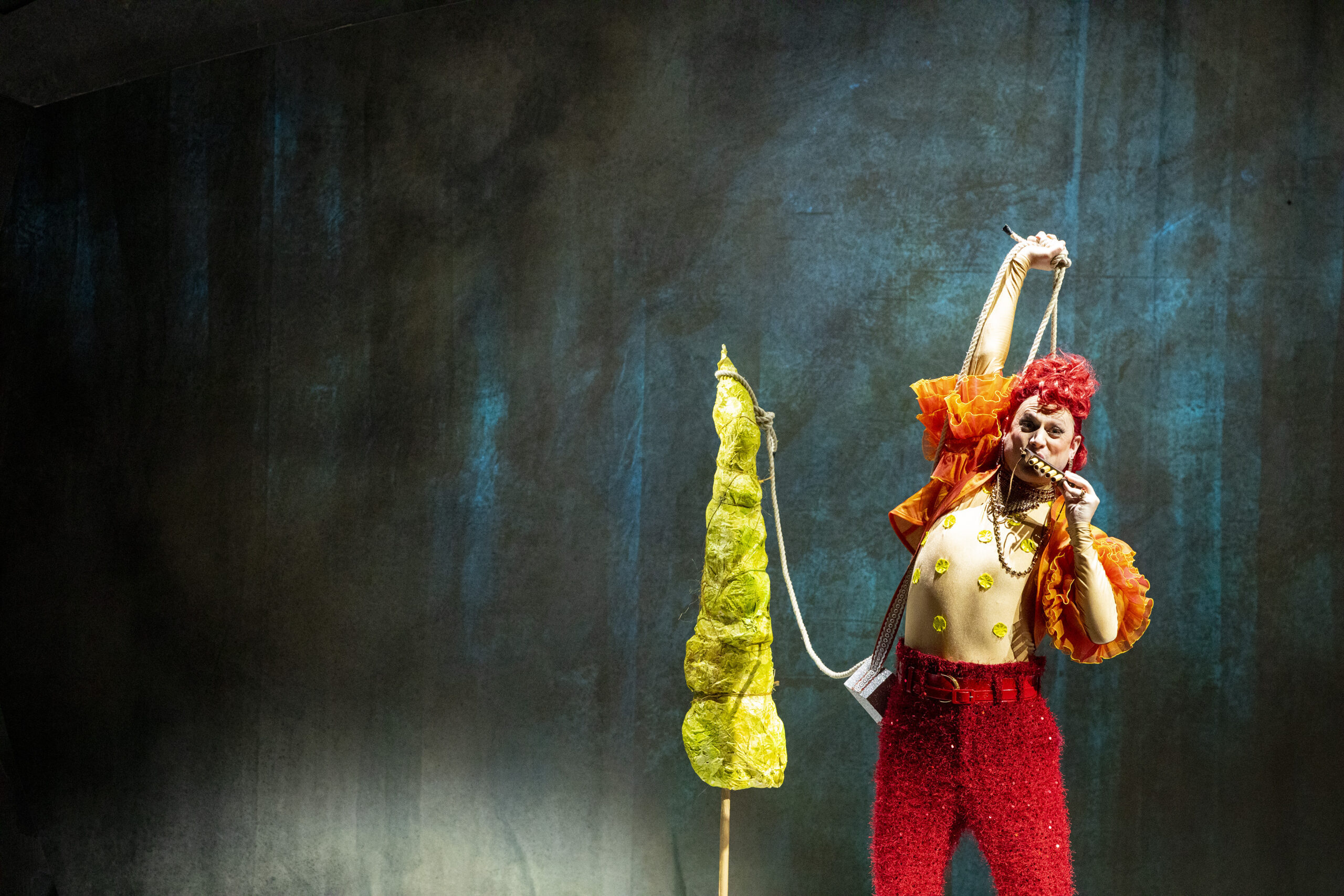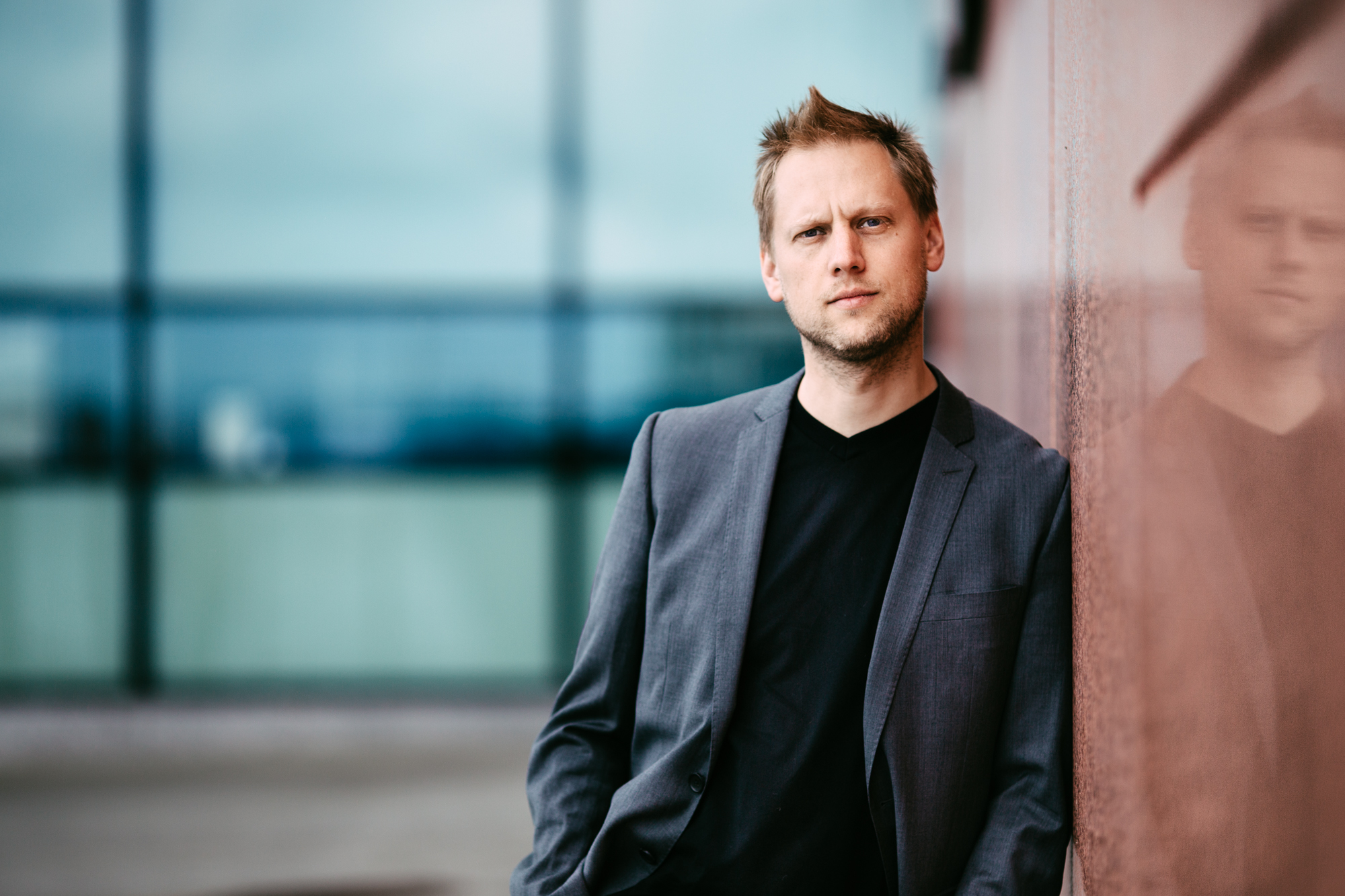
Norwegian baritone Leif Jone Ølberg stood out for vocal flair
– Evening Standard, Il barbiere di Siviglia, PopUp Opera
Acclaimed for his comic talent and strong presence on stage combined with a beautiful and solid voice, young Norwegian baritone Leif Jone Ølberg has been a regular guest at the Royal Danish Opera and the Danish National Opera the last years. There he has performed roles including Figaro in Il barbiere di Siviglia, Onegin in Eugene Onegin, Papageno in Die Zauberflöte, Escamillo in Carmen, Marullo in Rigoletto, Schaunard in La Bohème and Bello in La Fanciulla del West. He also performed the role of Tadeusz in the Scandinavian premiere of Weinberg’s Holocost opera Die Passagierin. In that particular opera he also demonstrated he is an accomplished violinst, playing himself, on stage, the advanced beginning from Chaconne – Partita nr.2 by Bach, composed into the opera by Weinberg to be played by the character of Tadeusz. In 2021 he sang the role of Reverent Jones in the Kenyan opera Nyanga – Runaway mother at Kenya National Teatre, and he continues to be involved in teaching young opera singers in Kenya.
Leif Jone is also an experienced oratorio soloist and lieder singer, and regularly goes on tour with his dad at the piano.
BIOGRAPHY
Leif Jone grew up in the small town of Kabelvåg in the picturesque islands of Lofoten in Northern Norway. Here he started his music education playing the violin, both classically and folk music. He was also taught to play the piano by his father. Walking home from school, his mother could always hear him singing before she could see him! In the winters he would go cross country skiing nearly every day. Summers was spent with family and with summer orchestras.
Moving to the bigger town of Bodø, just north of the arctic circle, he starting singing in a boys choir and playing the violin in the main orchestra of the city, and at the age of fifteen he became the conductor of a youth choir. He attended music high school, still with the violin as his main instrument. He also played violin in his first ever opera, Aida, in a huge production at a Music Festival in Bodø. It did however not make him an opera lover. But he loved to sing, and after long encouragement from a singing teacher at school he was convinced to change his main instrument to singing before his final year at school, ending the year with top grade in his final exam. He applied and was accepted at the Music Conservatory (University in Stavanger) in Stavanger, where he moved to continue his musical education.
In Stavanger he began touching more upon the vast world of opera, a world he hardly had touched before in his life. In addition to studies he started working as an organist at the local hospital. There was also time to investigate time in another of his passions, playing and watching football. Ambidextrous, he could cover both sides playing at the wing or as side back, or as a striker. Also his voice is of the flexible sort with a wide range, therefor making his repertoire span wide.
Wanting to study abroad, Leif Jone applied for Guildhall School of Music & Drama in London, and got admitted to their Master in Performance. There he got the opportunity to work with eminent teachers including Robert Dean, Graham Johnson, Iain Burnside, Andrew Watts, Lada Valesova and Emanuele Morris. He learned more and more about the exciting world of opera, finished his Master in Performance with distinction. He was also engaged two seasons at Glyndebourne Festival Opera Chorus. Intrigued by the revealed world of opera, and especially the dramatic and acting part of it, he applied to the Royal Danish Opera Academy in Copenhagen.
The years at the Opera Academy in Copenhagen bore fruits. Months with drama improvisation and putting up a play by August Strindberg was extremely useful to appreciate the whole act of being an opera singer. And of course there was plenty of staged performances of excerpts from operas. He received excellent teaching and guidance from teachers including Anne Margrethe Dahl, Christen Stubbe Teglbjerg, Ebbe Knudsen, Susanna Eken, Fiona McSherry, Ouri Bronchti and Thomas Darelius to name a few. Still a student he made his debut at Morales in Carmen at the Royal Danish Opera. And in his final year at the Opera Academy he was offered two roles by the Royal Danish Opera, the title role of Figaro in the Barber of Seville and Abner in Saul and David. GregersDH.dk wrote on his performance of Figaro that “Leif Jone launched a baritone that could burn through with playfulness, voice and text, from the second he sped in on his barbershop-equipped cargo bike”, while the Information wrote that “Leif Jone sang a beautiful Abner” in Saul and David.
While being at the Opera Academy, Leif Jone worked as organist in the Norwegian Church in Copenhagen, a job he continues to do as often as he can. Recently he has started playing the Norwegian “Hardanger fiddle”, which, along with his violin, he often uses when playing for the services at the church. He conductes the church choir, and he plays football with friends in the church basement every week if he can. Unfortunately, Denmark is not a winter sports country, so now Leif Jone has bought roller skies so he can go cross country skiing all year!
A versatile musician, Leif Jone loves being challenged in new ways. He has grown to love opera and the drama and passion that lives in it. Acclaimed for his acting skills and strong presence on stage, together with a strong, but warm voice, he feels natural as home on the opera stage as in lied-recitals, or behind the organ keys or playing his violin.
